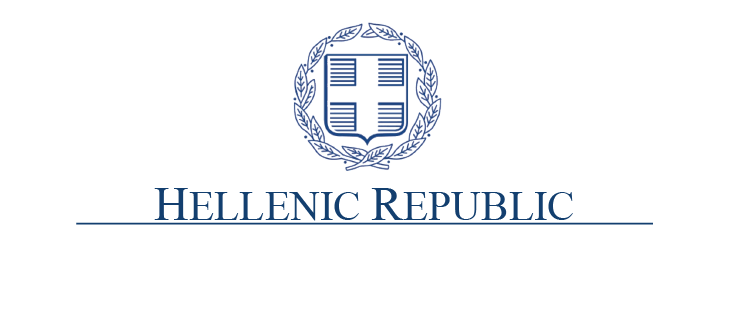The first of a series of six thematic seminars planned by the NTA, in line with its institutional role and initiatives to raise awareness and inform all private sector stakeholders about mobilising social forces in the national effort to fight corruption, has been successfully completed. The first seminar was themed "Fighting Corruption as a Pillar of Corporate Social Responsibility".
Over 200 private and public sector executives had the opportunity to attend and learn through the exchange of views and good practices on how Corporate Social Responsibility (CSR) initiatives developed by companies can actively contribute to the fight against corruption, meeting the demands of contemporary society for integrity and accountability.
The participants discussed the policies that companies should adopt in order to assess corruption risks and select appropriate measures to address them. Furthermore, the role of ESG (Environmental, Social, Governance) policies in enhancing integrity and transparency was discussed, with practical applications provided as examples. In the second part of the webinar, the participants were given the opportunity to address hypothetical bribery and corruption scenarios.
The webinar was initiated by the NTA Governor, Mr. Angelos Binis, who stated that the objective was to illustrate how companies can and should spearhead the fight against corruption through a holistic approach, integrating the issue of strengthening integrity into their broader CSR programme. “It is crucial to identify and leverage the potential of synergies between public and private entities in achieving this shared objective” he emphasized. “There are no barriers between the public and private sector. We value input from market participants to adopt effective practices, identify common ground, and plan and execute joint initiatives”.
The event was moderated by Ms. Maria Gavouneli, Associate Professor at the Law School/ National & Kapodistrian University of Athens and member of the NTA BoD. Ms. Gavouneli emphasised the importance of information and awareness for all stakeholders. She emphasized the necessity of a joint effort in order to effectively discuss prevention and fight against corruption. She highlighted the importance of CSR programmes, developed by companies, as a key good practice in the fight against corruption. “Such programmes can actively contribute to combating corruption, meeting all the requirements of integrity and responsibility that are so necessary in our complex society” she noted.
Ms. Maria Alexiou, President of the Hellenic Network for Corporate Social Responsibility (CSR Hellas), highlighted during her presentation that CSR is inextricably linked to three core principles: responsibility in decision-making, accountability for the consequences of management actions or omissions, and compliance with rules beyond the minimum legal framework. She went on to say that the fight against corruption is a priority in the implementation of the CSR principles. This should be done within the sphere of company’s influence, with systems that limit the risk of involvement in acts that reinforce this phenomenon. It should also be done in relation with key stakeholders, such as public authorities at every level, or suppliers of a company. It is irrelevant whether a company is large or small, or operates in a particular sector. We are all equally exposed to this critical risk. Effective management of corruption-related risks helps to strengthen the set of policies that a company has in place for its sustainability over time, as well as the sustainability of its partners and employees and all those affected by its operations.
Mr. Ioannis Dellatolas, Deputy Director Listings Division at Athens Exchange Group, stated that “Athens Exchange, recognizing its central role, makes a significant contribution to the promotion of sustainable investments, enhancing transparency and investor confidence in the Greek capital market through the comprehensive integration of ESG issues”. He went on to say that as one of the founding members of the Hellenic Corporate Governance Council, and in line with the guidance set out in the ESG Reporting Guide, it actively promotes the importance of good corporate governance, as well as the fight against corruption.
Mr. Sofoklis Karapidakis, Director of Compliance and Data Protection at MYTILINEOS, presented an analysis of how the private sector can identify and detect the risk of corruption and contribute to the fight against it. He also presented a good practice implemented by the Company on a holistic approach to third party integrity audits throughout their engagement with MYTILINEOS.
Mr. Konstantinos Yamalidis, TITAN Group Compliance & Anti-Fraud Director, noted that “To effectively address the phenomenon of corruption, it is essential to gain a deeper understanding of certain critical parameters, as well as adopt a holistic approach. The TITAN Group is committed to integrity and responsible business conduct. To this end, the Group has implemented a comprehensive anti-corruption and anti-fraud system. Based on international best practices, the system is designed to prevent corruption through education and the creation of an environment that discourages similar activities. When effectively managed, CSR initiatives can make a significant contribution to the fight against corruption by demonstrating transparency and credibility to local communities”.
During the webinar, an online vote was conducted via the online application "Mentimeter," with the results facilitating an engaging exchange of perspectives among the speakers. The series of six webinars (five thematic and one debriefing) is scheduled for completion in July 2022.
Please find the link below to access the webinar:
 EL
EL  EN
EN 
